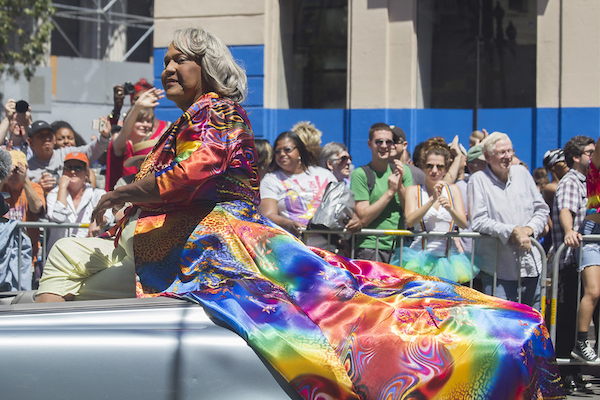Miss Major Griffin-Gracy is perhaps most well known for her involvement in the 1969 Stonewall Inn Riots, but her activism extends over four decades and across the country.
Born in 1940 on the South Side of Chicago, Miss Major grew up hearing that her identity was just a phase after coming out as transgender to her family. She moved to Minnesota after graduating high school and was expelled from two different colleges for wearing dresses. In 1962, she moved to New York City at a time where cross-dressing was considered a criminal offense.
It was there that she frequented the Stonewall Inn and became an integral force in the riots. Decades later, Miss Major has stressed the importance of recognizing the role of trans folks in Stonewall. As one of the last Black trans girls from Stonewall still alive — she said in the 2015 documentary “Major!” — she is a regular voice in debunking the misconception that it was white gay men at the forefront of the riots. In the documentary, she expressed her disappointment in the Christopher Park Monuments, which commemorates the Stonewall Inn Riots with statues of a gay and lesbian couple. There is no trans representation in the sculpture.
While living in San Francisco, California in the 80s and 90s, Miss Major became an advocate and health educator while working with the Tenderloin AIDS Resource Center. She founded a drop-in center for trans people and became affectionately known as “Mama Major” or “Grandmama” by many. Miss Major has two biological and three adopted sons — but those who consider her family are in the dozens.
Miss Major has also dedicated a sizable part of her life advocating for prison abolition and helping incarcerated trans people. Miss Major herself was incarcerated several times and was once even sent back to prison while out on parole because she was wearing makeup. Years later, she became the first executive director of the Transgender Gender-Variant & Intersex Justice Project (TGIJP), providing legal services for incarcerated transgender and gender non-comforming people. TGIJP offers legal services, Black trans leadership development, legal advocacy and legislative lobbying and emergency housing during COVID-19.
Though she retired from her position at TGIJP in late 2015, Miss Major’s legacy continues through her continued activism. She has a building named after her: the Miss Major-Jay Toole Building for Social Justice in New York City which houses organizations committed to social justice for LGBTQ people of color and low-income people. She also runs House of GG, an educational retreat and historical center that acts as “safe and transformative spaces where members of our community can heal,” according to the website.
House of GG recently purchased “the Oasis,” a four-bedroom, 1/2 acre property in Little Rock, Arkansas with a swimming pool and screened in porch. According to the website, Miss Major and her team will begin hosting retreat weekends after the pandemic ends.


